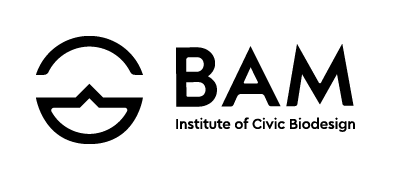Political Affiliation
The BAM Institute of Civic Biodesign does not adhere to a specific political ideology, but rather operates with a systems-thinking, community-centered, and regenerative approach that transcends traditional political boundaries. Its priorities and projects are deeply rooted in principles of collaboration, place-based design, resilience, and social innovation. These values are often associated with civic pragmatism, which focuses on solving problems at a community level without aligning strictly to partisan positions.
Key aspects of BAM's approach reflect ideologies and movements that intersect across political spectrums:
Regeneration and Sustainability: Emphasizing ecological restoration, permaculture, and sustainable development aligns with progressive environmental frameworks. Projects like Karol's Prairie and The Preservation Kitchen demonstrate a commitment to local resilience, natural resource stewardship, and equitable food systems.
Community Empowerment and Civic Engagement: BAM focuses on decentralizing solutions, empowering individuals and communities to act as agents of change.
Pragmatism Over Ideology: BAM’s focus on systems thinking, problem-solving frameworks (like Appreciative Inquiry), and tackling issues such as workforce development, housing insecurity, and local food resilience is practical rather than overtly ideological. Its solutions aim to address real, tangible needs without being tied to specific political dogmas.
Focus on Equity and Inclusivity: Projects like the Sioux Falls Tool Library, the UGM Preservation Kitchen, and park redesign efforts emphasize social equity, skill-building, and inclusivity. These values align with progressive movements focused on justice, access, and opportunity.
Self-Sufficiency and Resilience: BAM's model also reflects a nod to neo-agrarian and localist philosophies, valuing community autonomy, decentralization, and regenerative land use.
Conclusion:
BAM operates in a space that intentionally bridges divides, prioritizing systems-level solutions over ideological rhetoric. Its work reflects an ethos of civic renewal, ecological responsibility, and practical innovation, which are adaptable across political ideologies. Rather than fitting into a traditional left-right political spectrum, BAM embraces post-ideological pragmatism, seeking collective wellbeing through local, regenerative, and inclusive design.
